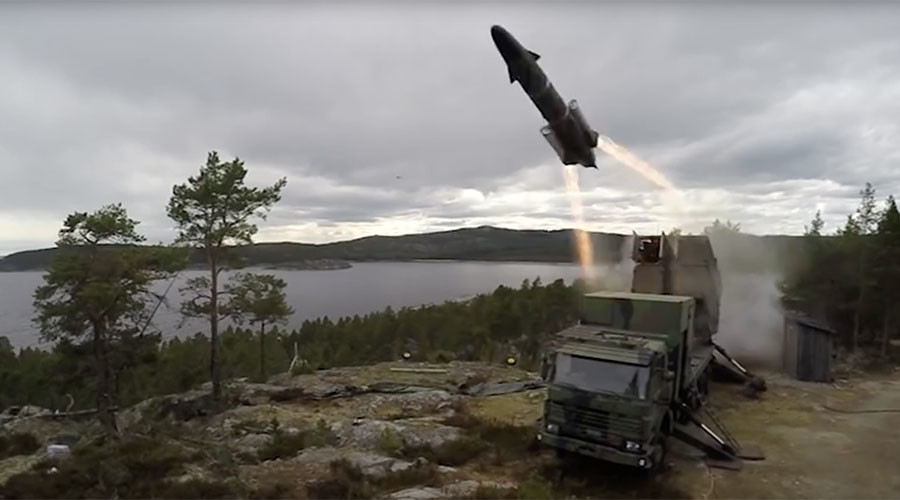It is possible that the age of migrant interventionism is just beginning
We need to know more about the ‘Fallon doctrine’
RT HOWARD
23 FEBRUARY 2017 • 10:47AM
It is time to have an open debate about the scope of a new guiding force of our foreign policy – ‘the Fallon doctrine’.
Liberal interventionism died on the battlefields of Iraq, Afghanistan and Libya, as Western governments belatedly acknowledged that they lacked the resources, and any justification, to impose their own values elsewhere.
But a different doctrine is now fast emerging: migrant interventionism. It is in our own interest, runs the argument, to militarily intervene elsewhere in the world to forestall a migrant exodus.
A refugee rescue boat leaves the Greek island of Lebos. As a gateway into Europe, Greece has been at the coalface of the migrant crisis. CREDIT: DIMITRIS LEGAKIS/ATHENA PICTURES
The emergence of migrant interventionism became clear at last week’s Munich Security Conference when the Defence Secretary, Sir Michael Fallon, justified the ongoing, if limited, British presence in Afghanistan on the grounds that the collapse of the country would lead to a massive refugee crisis. "We here will feel the consequences, very directly", he claimed. "There could be three to four million young Afghan men sent out by their villages to migrate westwards, and they are heading here".
This is the first time that a British, indeed Western, government minister has argued that British lives should be risked abroad to defend our shores from the export of refugees rather than insurgents and narcotics. It amounts to a new definition of self-defence.
Despite concerted efforts to dam the inflow, the underlying causes of the crisis – unchecked population growth, war and corruption – remain unresolved
This may have been an implicit consideration in other conflicts, notably the Bosnian civil war. But the ‘Fallon Doctrine’ still marks something of a turning point because it appears to justify, openly and unabashedly, our presence in Afghanistan purely on those grounds.
The advent of migrant intervention should be welcomed as a proactive and imaginative way of tackling the refugee crisis, which is not likely to diminish any time soon.
Last year around 1 million refugees and migrants arrived in Europe, and despite concerted efforts to dam the inflow, the underlying causes of the crisis – unchecked population growth, war and corruption – remain unresolved and, in some Western circles, barely even discussed. In other words, we have little choice but to consider options as drastic as migrant interventionism.
Sir Michael did not specifically say that we, or anyone, should involve ourselves in any foreign country just to prevent a refugee crisis. He argued, instead, that "if it was right to go in, it has to be right not to leave before the job is done as well as we can do it". But no matter what the circumstances, if British lives are to be put in danger, and our material resources potentially squandered, we need to at least ask some pressing questions.
Assuming that a particular country is a likely source of refugees, one obvious starting point is to ask if there are any alternative options that are less drastic than a full military deployment. In Afghanistan, for example, there have been times – notably the 1990s – when Western governments could have sponsored several anti-Taliban proxies.
If there are such proxies available, can they be sponsored without boots on the ground ? And if this really is necessary, can advisers rather than frontline soldiers be deployed?
In May last year, the then foreign secretary, Philip Hammond, took this more measured approach when he announced a £40 million subsidy to the Nigerian government to support its war against Boko Haram, mainly by providing Nigerian soldiers with specialist training. Such an initiative, undertaken with an efficiency and expertise that the forces of the African Union wholly lack, could eventually help curb the rapidly growing number of refugees who are fleeing Nigeria.
If soldiers are deployed, then we also need to ask if their geographic role can be limited. A military deployment could establish internationally controlled ‘safe areas’ of particular strategic or economic importance that would provide local populations with economic opportunities. Nothing more ambitious is necessarily required.
Fourthly, can our armed forces limit their structural role to enforcing law and order over specific areas and regions? Nothing remotely as grandiose as the old-style nation-building which fell into disrepute in Somalia, Iraq, Afghanistan and Libya is required. France’s armed forces have recently played a limited role in Mali, for example, undertaking anti-insurgent operations with great success.
Finally, does the British government have any potential allies that would assist us? Perhaps in the years ahead China, the EU states and, despite its isolationist rhetoric, the US could work together with us to pursue a shared policy of migration interventionism in sub-Saharan Africa.
It is possible that the age of migrant interventionism is just beginning and is set to grow, marching ahead in direct proportion to the massive inflows of people into the Western world. There is no time to be lost in addressing the dangers, as well as acknowledging the opportunities, it brings.
RT Howard is the author of 'What's Wrong with Liberal Interventionism' (SAU) and 'Power and Glory: France's Secret Wars with Britain and America 1945-2016'



